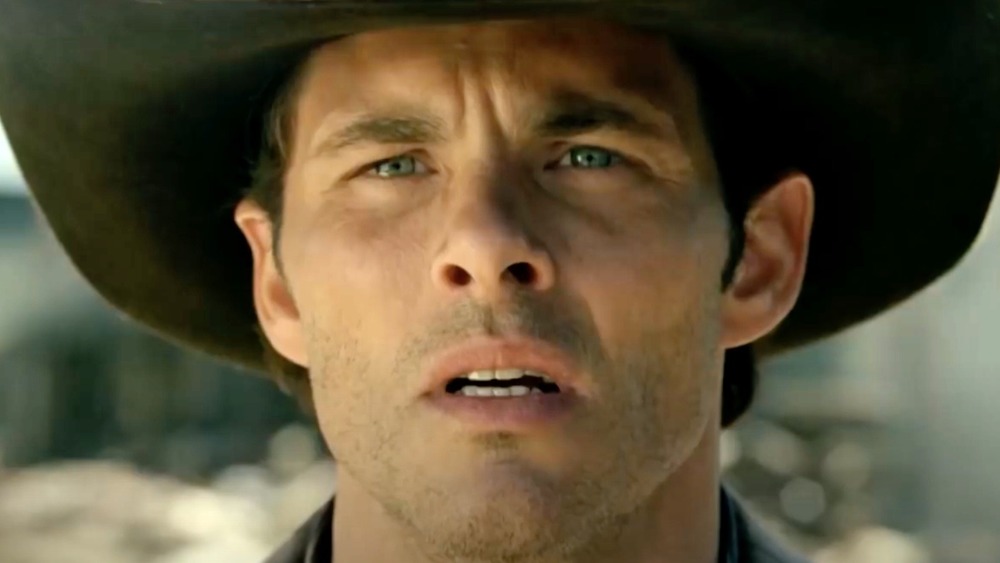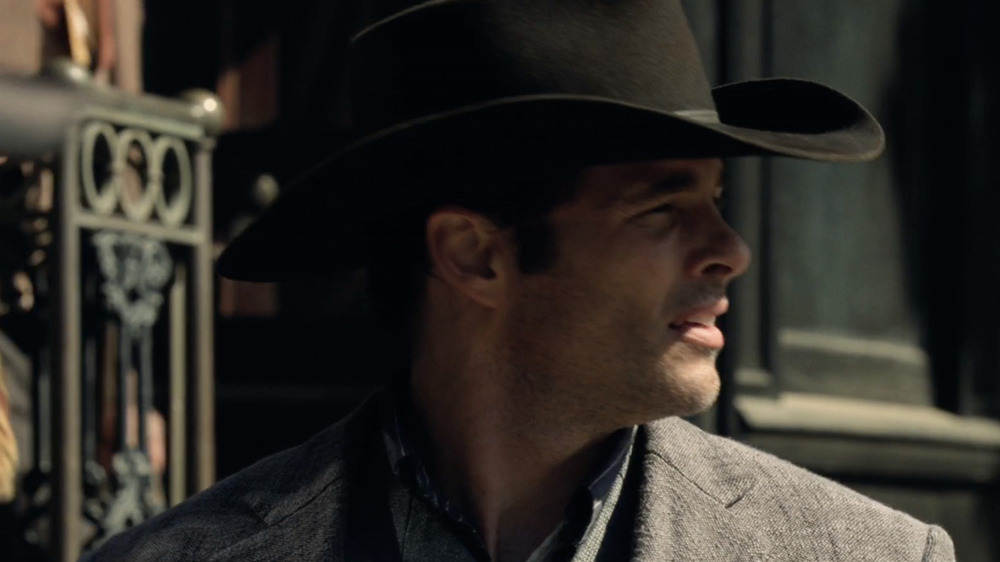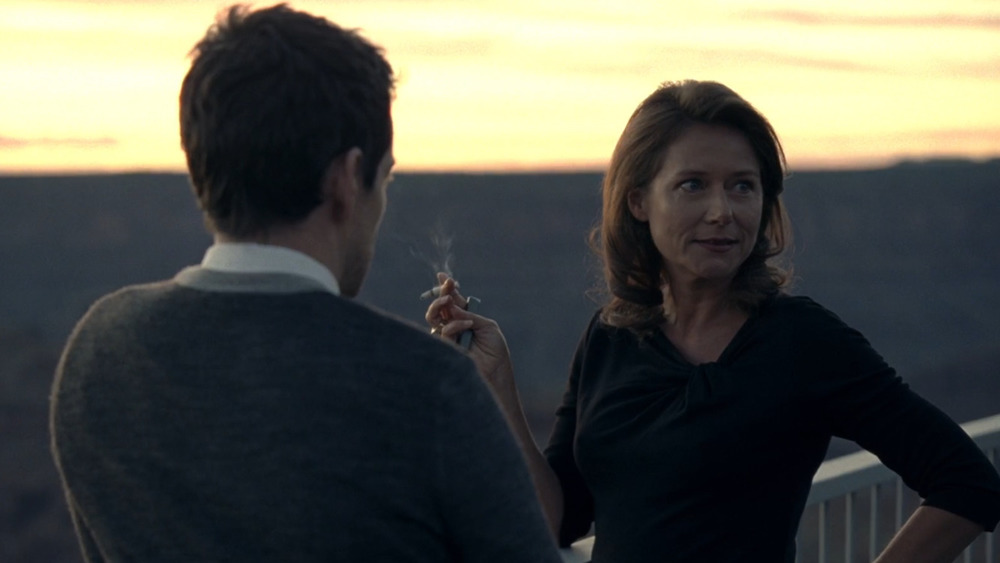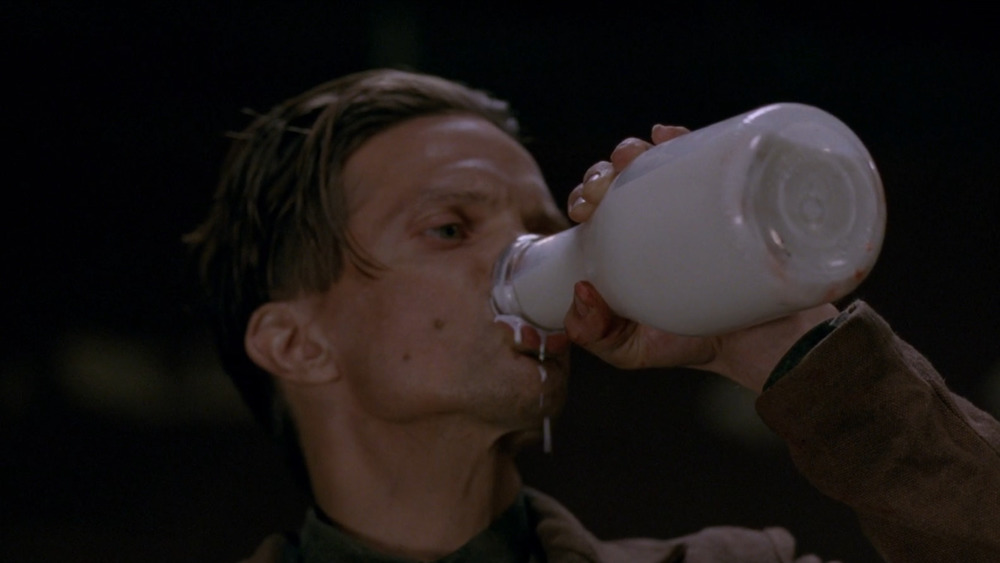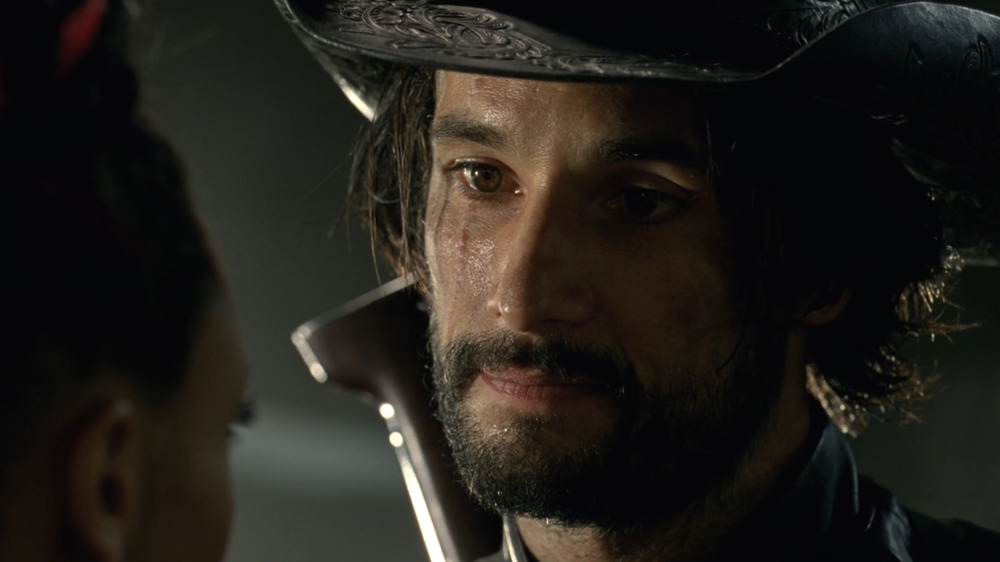Things You Forgot Happened In The Pilot Episode Of Westworld
Westworld has come a long way from its original cowboys-and-robots aesthetic. Season 3 ended in a not-so-distant future, where humanity may be on the brink of either extinction or self-actualization. HBO renewed the sci-fi epic for a fourth season in 2020, with an as-yet-unknown release date. There was a two-year break between seasons 2 and 3, which were released in 2018 and 2020. That puts season 4 further and further away from when the pilot episode came out, way back on October 2, 2016.
Westworld is based on the 1973 film of the same name, written and directed by Jurassic Park and E.R. mastermind Michael Crichton. The film shows the collapse of a robotic theme park where people can immerse themselves fully in an Old West, ancient, or medieval setting and give in to their basest desires. The robots revolt, and we follow Peter Martin (Richard Benjamin) as he tries to escape the consequences of humanity's actions. Season 1 of the HBO show leads up to a robot uprising, showing us how we got to the place where the film begins.
Rewatching the pilot episode of Westworld, one is thrown back into the original setting and premise of the show, a world that has been long abandoned and is full of characters that are long dead. There's a lot that you probably forgot happened and even more that takes on new meaning after three seasons of crazy moments, plot twists, and character development. Here's what you forgot about the Westworld pilot, and what only makes sense after knowing spoilers for seasons 1-3.
We thought Teddy was human in the Westworld pilot
In the first episode of Westworld, the viewer is led to believe that Teddy, played by James Marsden, is our viewpoint human character. He is set up to be the Peter Martin of this tale. We see Teddy reconnect with Dolores (Evan Rachel Wood) and defend her from bandits, only for the Man in Black to shoot him dead and assault Dolores.
Shortly after this, we are introduced to the concept of loops. The robots of Westworld, known within the show as "hosts," are set in routines that weave in and out of each other. If a guest disrupts one character's loop, the others find ways to continue their respective paths. Dolores seems to be on a daily loop: waking up, going into town, painting horses at the river, then returning home. Other things can happen in this loop, but the general shape of her days is set.
Before Teddy is outed as a host, Dolores hints at his robotic nature in a way that only a second viewing illuminates. When Dolores says she knew he'd be back, Teddy asks if he's predictable. Dolores responds, "There is a path for everyone. Your path leads you back to me."
We get hints of the bigger Westworld plan at Delos
Even in the pilot episode, we are given hints that Westworld is much more than a theme park for the idle rich. "This place is one thing to the guests, another to the shareholders," says Theresa Cullen (Sidse Babett Knudsen), "and something completely different to management."
The audience doesn't yet know what Westworld is to management, nor even who management is. In season 2, we learn that Delos has been gathering data on parkgoers for years — ostensibly to create "immortal" hosts that are true continuations of paying customers.
In season 3, we learn that moles have sold some of Delos' data to Incite, a company that developed a quantum A.I. named Rehoboam. Rehoboam has used this data to control humanity, supposedly to prevent it from self-destruction. Humans have been controlling the hosts' loops, but an A.I. has been controlling the loops of human beings. Really makes you think.
The milk guy happens in the pilot
What is it about milk? Whether it's the opacity, the connections with childhood, or the fact that it comes from cow boobs, it's just the creepiest liquid in fiction (via The Awl). Hans Landa drinks milk in Inglourious Basterds, the McPoyles are obsessed with the stuff in It's Always Sunny, and Anton Chigurh favors moo juice in No Country for Old Men. And, of course, there's the malfunctioning host Walter in the Westworld pilot.
Walter goes on a rampage, killing all the other hosts in his immediate vicinity. He then tries to feed them milk postmortem, because it's good for a growing boy. This is one of the first signs that things are very, very wrong in Westworld. Anthony Hopkins' Ford has put reveries, a new program, into some hosts. Reveries access unwiped memories of past loops, motivating emotional gestures in the hosts. They also seem to make the hosts go absolutely bonkers for murder and/or milk. No guests are physically hurt in the incident, but they are almost certainly scarred for life. Walter is lobotomized and put in cold storage at the end of the episode.
Hector tries to tell us Westworld's mission statement
To deinstall Ford's reverie program, the powers that be in Westworld push up a big bank heist story by a week. Head of narrative Lee Sizemore (Simon Quarterman) motivates Hector (Rodrigo Santoro) to come to town and deliver a little speech. We never get to hear the speech in the pilot because a guest shoots Hector through the neck before he can give it. Lee actually delivers the speech in season 2, and it sums up the show's themes quite nicely.
"You wanted me? Well, let this be a lesson. And the lesson is: if you're looking for a reckoning, a reckoning is what you'll find. If you're looking for a villain, then I'm your man. But look at yourselves," Lee/Hector says to the townsfolk/humanity as a whole. "The world you've built is bound by villainy! You sleep on the broken bodies of the ones who were here before you. Warm yourself with their embers, plow their bones into your fields. You paid them for this land with lead, and they'll pay you back in full. You wanted me? Well, all I can say to that is here I f***ing am!"
A major theme of Westworld is how we often create what we fear most through our own actions. William fears that he is completely alone, and he winds up killing the only person who cared about him. Serac fears humanity's self-destruction, and he creates something that could do the job of killing humanity for us. A question is at the heart of the show: Are we our programming, or is there free will? Maybe season 4 will finally have the answer.
